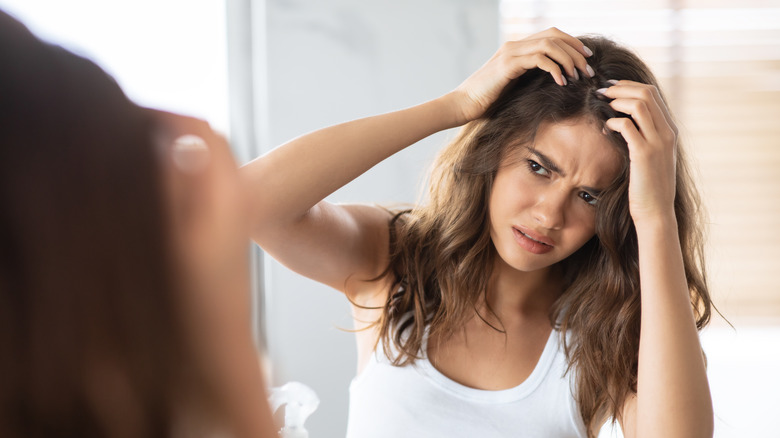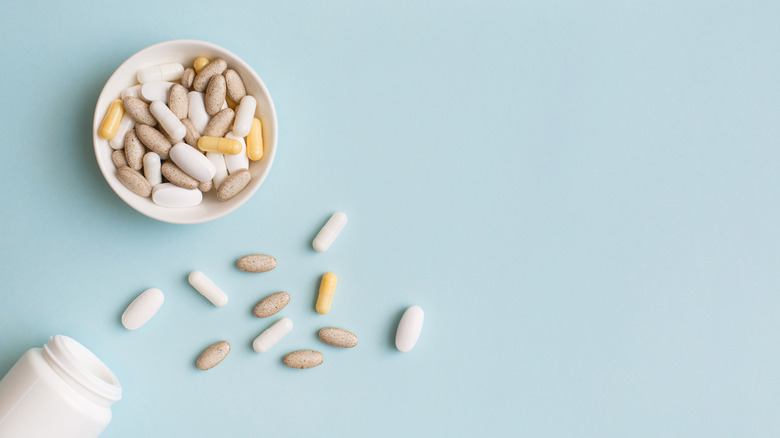The Vitamin You Need If You Struggle With Hair Loss
Hair loss can make you self-conscious and affect your confidence. There are many potential causes of hair loss, including hormonal changes, genetics, medications, health conditions, and stress (via Mayo Clinic). Because there are so many reasons you may be experiencing hair loss, it can be tricky to determine exactly what is causing your hair to thin or fall out. One easily treatable cause of hair loss is a vitamin deficiency. Certain vitamins and minerals are necessary for healthy hair growth. If you are deficient in these vitamins, you may experience hair loss.
One of these vitamins is biotin, which is often found in hair and skin supplements (via WebMD). People who are pregnant, breastfeeding, or taking certain antibiotics or epilepsy drugs are at a higher risk of developing a biotin deficiency. Being low in iron can also cause hair loss as well as fatigue, brittle nails, and pale skin. Other vitamins that are essential for healthy hair include vitamin C, vitamin D, and zinc. If you believe you are deficient in any of these vitamins, speak to your doctor about how to get them in your diet. Supplements may also be necessary for some people, especially those who are truly deficient in a vitamin or mineral.
What to know about taking supplements
Many people take one or more supplements every day. While most supplements are safe to consume within the recommended dosage, there are a few things you should know before adding them to your daily routine. The supplement industry is not regulated by the FDA and may not always be transparent about ingredients (via HuffPost). "Supplements, in general, are kind of an unregulated market. A lot of supplements are not FDA approved so we don't get a lot of research on them," said Michelle Henry, clinical instructor at Weill Cornell Medical College.
However, this isn't to say that all supplements are bad. If you are deficient in a vitamin or mineral, taking a supplement can help you get the nutrients you are not getting through food alone (via Penn Medicine). "In addition to a healthy diet, there is evidence that some supplements can benefit your overall well-being with little to no risk," said Jeffrey Millstein, MD, a physician at Penn Internal Medicine Woodbury Heights. If you want to be extra safe, talk to your doctor about which supplements they recommend or bring your product of choice for them to examine. They can help you determine which supplements are safe to take.


